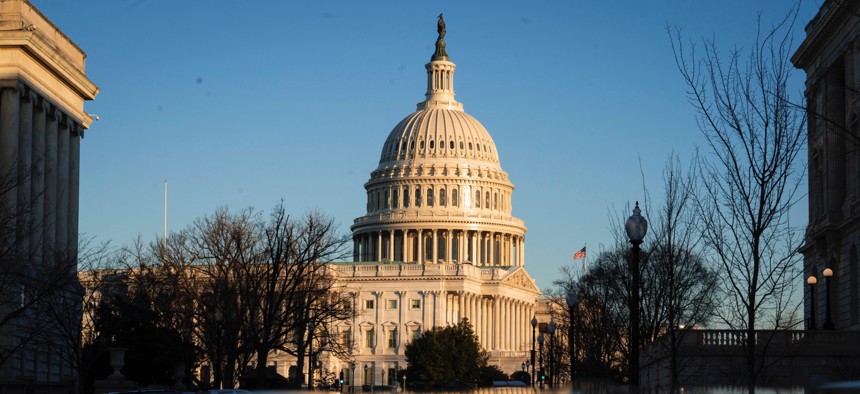
Federal employees may receive a 5.2% pay raise, after Congress failed to address the issue before the Christmas recess. Sarah Silbiger / Getty Images
That’s a wrap? Congress kicks it without passing fed pay bill, so White House’s 5.2% pay boost on deck
COMMENTARY | The lack of appropriations legislation before the Christmas recess means that federal employees could get their largest pay raise in decades.
So, 2023 is just about history. And Congress, having spent most of our last trip around the sun in political paralysis not surprisingly ran out the year’s clock in the same hardly decorous manner.
And, frankly, for feds that’s the good news. How so? Each year federal retirees and Social Security recipients get a cost-of-living adjustment that is carefully—if imperfectly—tabulated using a formula that crunches hard inflation data from the wider economy. Current federal employees, on the other hand, get their pay boost—if any—only by way of a political process. This process is governed under the Federal Employees Pay Comparability Act, or FEPCA. And when Congress does not act on this matter in a given year, then the federal pay adjustment comes from a stroke of the president’s pen.
This year, since Congress took its final recess without passing the customary appropriations bill, the White House almost certainly will issue an alternative pay plan along the lines President Biden proposed months ago: 4.7% base increase and, taking into account locality pay, an average pay boost of 5.2%.
“Clearly, with the very long leadership conflict in the House, there's been more uncertainty than usual this year,” declared James Perry, professor of public administration at Indiana University. “But I think that federal employees have gotten somewhat used to the song and dance with the chaos in this process. There’s a sort of ritual now about passing, and not passing, budget bills and delaying things. But, in the end, most of what matters to feds usually falls into place. Late—but falling into place, nonetheless.
“Having said that, this is a real problem,” Perry cautioned. “That toleration seems to be greater among older members of the workforce. There are a lot of uncertainties here as the workforce ages out and changes. The question I pose is whether, with relatively few young people working for the federal government, part of the problem in attracting new and talented people is all this chaos around pay. It may be deterring new people from joining, or even staying with the federal government—and may be why we have an aging workforce in government.”
He added that there may be more concerns for feds on the horizon, namely the 2024 election pledges by former President Donald Trump and other GOP candidates to reinstitute civil service policies like the Trump era Schedule F or other plans.
Perry’s gloomy longer-term concerns aside, for now, if it goes through at plus-5.2%, feds can expect the biggest single federal pay increase since—wait for it—1981. Merry Christmas, everyone!






